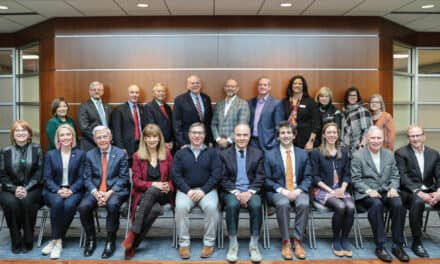The American Dental Association (ADA) has released a statement on the decision of the Commission on Dental Accreditation (CODA) to allow programs that educate midlevel dental providers—non-dentists who perform such surgical procedures as extracting teeth—to apply for accreditation. CODA is an independent entity recognized by the US Department of Education as the national accrediting agency for dental, allied dental, and advanced dental education programs.
“CODA’s decisions are made independently from ADA policy. The ADA believes it is in the best interests of the public that only dentists diagnose dental disease and perform surgical and irreversible procedures,” says the ADA statement. “When it comes to affordability and access to health care, there is no one-size-fits-all solution. That’s why the ADA launched Action for Dental Health, a nationwide, community-based movement that provides care now to those already suffering from dental disease, strengthens and expands the public/private safety net, and brings dental health education and disease prevention into underserved communities. Unlike proposals that will take years to implement, Action for Dental Health comprises here-and-now solutions led by ADA member dentists working with existing dental team members in an efficient, proven system that is getting more people the care that they need now.”
The ADA also points out that a recent report by its Health Policy Institute shows that the number of dentists practicing per 100,000 people today has climbed more than 4% from 2003 to 2013, and is projected to increase 1.5% from 2013 to 2018 and 2.6% by 2033—putting to rest any concerns about a future dentist shortage.
However, the ADA says it recognizes that people in underserved communities have difficulties connecting to public health resources and dentists who can provide needed treatment.
“That’s why the ADA supports federal and state programs that offer incentives like student loan repayment assistance to attract dentists to these communities. It’s also why the ADA created a new dental team member, the Community Dental Health Coordinator (CDHC). The initial ADA CDHC pilot project graduated 34 CDHCs. Pilot project graduates have brought their skills to such underserved communities as inner cities, remote rural areas, and Native American communities in more than eight states. Three schools in New Mexico, Arizona, and Florida are offering the CDHC program.”
The ADA further points to a recent study showing that access to dental care is improving for children. A 2014 Health Policy Institute study shows the rate of children visiting the dentist was at its highest in 2012, and from 2000 to 2010 dental visits among low-income children increased in 47 states. Recent data published by the Centers for Disease Control and Prevention indicates a downward trend in early childhood caries with increased treatment of children.
The ADA says it is focusing on helping communities develop programs that fit their unique needs, and is working along with state and local dental societies, individual dentists, and the many public and private partners in Action for Dental Health to provide care today to the people who need it most. Moreover, the ADA is working toward a better oral health system, one that emphasizes prevention over surgical treatments like fillings and extractions.




